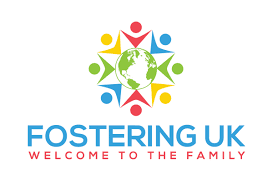All about Long-Term Foster Care
Long-term foster care is crucial in the field of child welfare because it gives children who cannot be adopted or returned to their biological families safe homes. This article explores the relevance of long-term foster care, as well as its advantages, difficulties, and procedures. Long-term foster care is an essential intervention for people in need of a caring and nurturing environment, with a focus on safeguarding the well-being and development of kids.
Understanding Long-Term Foster Care
Understanding Long-Term Foster Care
A child is placed in long-term foster care when they live with a foster family for a lengthy period of time, frequently until they are adults or become independent. This arrangement is excellent for kids who, for a variety of reasons, are unable to be reunited with their biological families or find adoptive homes.
The Importance of Stable Homes
The Importance of Stable Homes
When their physical, emotional, and psychological needs are met in a secure, supportive environment, children flourish. Long-term foster care offers a stable and loving home environment that supports wholesome growth and development. It enables kids to develop strong ties with their foster homes, ensuring they get the love, care, and direction they need during their formative years.
The Benefits of Long-Term Foster Care
The Benefits of Long-Term Foster Care
- Continuity and Stability: Stability is a benefit of long-term foster care because it gives kids a secure home environment, reliable carers, and a sense of community. Their general well-being depends on this consistency, which also lays a strong foundation for the future.
- Emotional Support: Foster families are essential in helping children in long-term foster care receive emotional support. Foster parents establish a secure environment where kids can express their emotions, recover from prior trauma, and learn effective coping skills by developing trusting relationships.
- Educational Opportunities: Children who are placed in foster care for an extended period of time can continue their education, ensuring they have the resources and academic support they need to succeed. To ensure that the children's educational requirements are adequately met, foster parents frequently work with schools and educators.
- Permanency and Belonging: Long-term foster care gives children a sense of belonging within a loving family unit, even though it may not offer the same permanence as adoption. Foster families play a significant role in a child's life by providing them with stability and care throughout time.
The Process of Long-Term Foster Care
The Process of Long-Term Foster Care
- Assessment and Approval: Prospective A detailed assessment process is undertaken by foster parents who are interested in offering long-term foster care. Background checks, house visits, interviews, and training are all part of this process to make sure they can give the child a secure and nurturing environment.
- Matching Process: Following approval, foster parents collaborate extensively with social workers to fit the needs of the child with the dynamics of their own family. The process of matching takes into account a number of variables, including the child's age, background, and particular needs.
- Transition and Adjustment: A transitional phase starts when a kid is placed in long-term foster care. In order to do this, the youngster must be gradually introduced to their new family, giving them time to get used to one another. Support services are frequently offered to help the foster family and the kid during this critical time.
- Ongoing Support and Monitoring: Being in long-term foster care requires a team effort. Foster families receive ongoing assistance from social workers, who make sure they have access to tools, therapy, and training as necessary. The child's progress is evaluated frequently, and any issues that may occur are addressed.
Challenges in Long-Term Foster Care (continued)
Challenges in Long-Term Foster Care (continued)
While long-term foster care has many advantages, it also has its share of difficulties. To ensure the welfare of the engaged foster families as well as the children, it is crucial to recognise and address these difficulties.
1. Attachment and Loss: Creating enduring bonds with foster children can be difficult but also emotionally fulfilling. Foster parents must strike a fine balance between establishing relationships and being conscious of the possibility that the kid will someday go on to another placement or maturity.
2. Trauma and Behavioral Issues: Numerous children in long-term foster care have suffered trauma, which may lead to behavioural issues. To aid in the healing and development of foster children, foster families must be well-versed in trauma-informed care techniques, compassion, and understanding.
3. Navigating Complex Systems: Foster parents may find it difficult to deal with the legal system, educational institutions, and child welfare organisations. Knowing how to navigate these intricate systems and fighting for the needs of the kid demands expertise, tolerance, and perseverance.
4. Sibling Placement: Ensuring that siblings are placed together when they are placed in long-term foster care can be difficult. Maintaining sibling ties is essential for their emotional well-being, but doing so can need finding a foster family that can take in several kids.
5. Transitioning to Adulthood: Children in long-term foster care must make the transition to independent life as they get older. Foster families must help young people transition by giving them access to resources, support with their schooling, and training in life skills in cooperation with support services.
Conclusion
Conclusion
For children who are unable to be reunited with their biological families or find adoptive homes, long-term foster care is an essential intervention. It fosters a child's healthy growth by providing stability, emotional support, and a sense of belonging. The best outcomes for children and foster families are ensured by tackling difficulties within the long-term foster care system with the right support, education, and collaboration.




Comments
Post a Comment